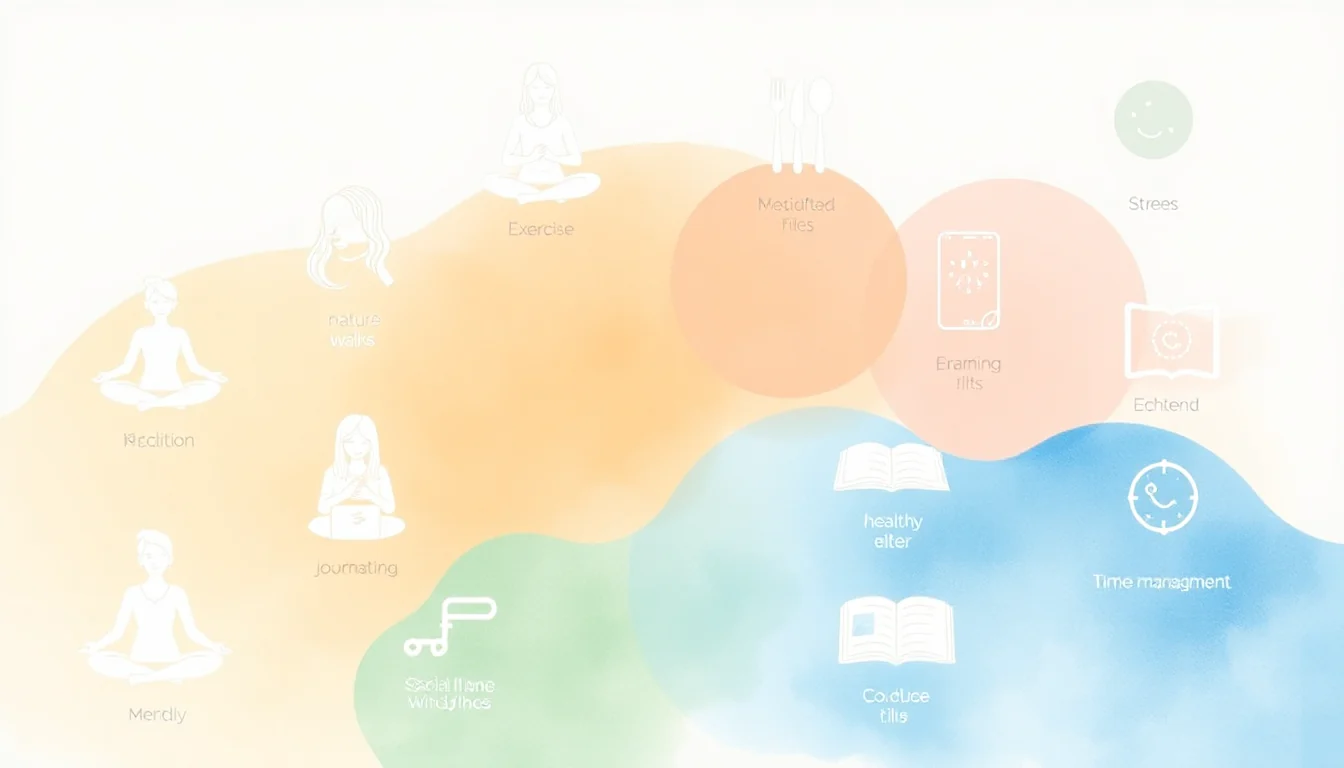In today’s fast-paced world, stress has become a constant companion for many individuals. While medication can provide temporary relief, it’s not always the best long-term solution. Fortunately, there are numerous natural and effective ways to manage stress without relying on drugs. In this blog post, we’ll explore 10 simple strategies that can help you regain control of your well-being and find a healthier path to relaxation.
Embrace Mindfulness Practices
Mindfulness is a powerful tool in the fight against stress. By learning to be present in the moment and focusing on your breathing, you can calm your mind and reduce the impact of stressful thoughts. Try incorporating mindfulness meditation, yoga, or even simple breathing exercises into your daily routine. Start with just 5-10 minutes per day and gradually increase the duration as you become more comfortable with the practice.
Engage in Regular Exercise
Physical activity is not only good for your body, but it can also have a profound effect on your mental health. Exercise releases endorphins, which can improve your mood and alleviate feelings of stress. Whether it’s a brisk walk, a yoga session, or a high-intensity workout, find an activity that you enjoy and make it a consistent part of your lifestyle.
Prioritize Self-Care
Taking care of yourself should be a top priority when it comes to managing stress. This can include activities such as taking a relaxing bath, reading a book, or engaging in a hobby that you find enjoyable. Make sure to schedule regular self-care time and treat it as an essential part of your daily routine.
Connect with Nature
Spending time in nature can have a calming effect on the mind and body. Whether it’s a stroll through a park, a hike in the woods, or simply sitting in your backyard, immersing yourself in the natural world can help reduce stress and promote a sense of well-being.
Practice Gratitude
Cultivating a grateful mindset can be a powerful antidote to stress. Take a few moments each day to reflect on the things you’re grateful for, whether it’s a supportive friend, a delicious meal, or a beautiful sunset. This simple practice can shift your perspective and help you focus on the positive aspects of your life.
Limit Caffeine and Alcohol Intake
While it may be tempting to turn to caffeine or alcohol as a way to cope with stress, these substances can actually exacerbate the problem. Excessive consumption of caffeine and alcohol can disrupt your sleep patterns, increase anxiety, and contribute to feelings of stress. Try to limit your intake of these substances and find healthier alternatives to manage your stress.
Seek Social Support
Connecting with friends, family, or a support group can be a valuable resource when it comes to managing stress. Sharing your experiences and feelings with others can help you feel less alone and provide a sense of community. Additionally, engaging in social activities can be a great way to take your mind off your worries and enjoy some much-needed relaxation.
Practice Relaxation Techniques
There are various relaxation techniques that can help you manage stress, such as progressive muscle relaxation, guided imagery, or even simple stretching exercises. Experiment with different methods and find what works best for you. Incorporating these techniques into your daily routine can help you feel more centered and in control of your stress levels.
Get Enough Sleep
Adequate sleep is essential for maintaining physical and mental well-being. When you’re well-rested, you’re better equipped to handle stressful situations. Aim for 7-9 hours of sleep each night and establish a consistent sleep routine to ensure your body and mind are getting the rest they need.
Prioritize Time Management
Feeling overwhelmed by a packed schedule can be a major source of stress. By learning to prioritize your tasks and manage your time effectively, you can reduce the sense of urgency and pressure that often contributes to stress. Consider using a planner, setting realistic deadlines, and delegating tasks when possible to help you stay organized and in control.
Remember, managing stress is a journey, and it may take some experimentation to find the strategies that work best for you. Be patient with yourself and don’t hesitate to seek professional help if you’re struggling to cope. By incorporating these 10 simple techniques into your life, you can take a significant step towards a healthier, more balanced, and less stressful existence.

